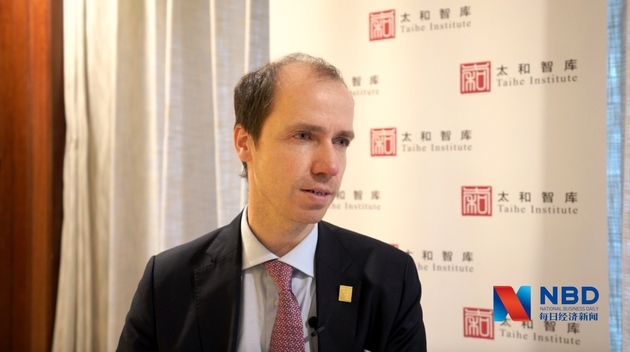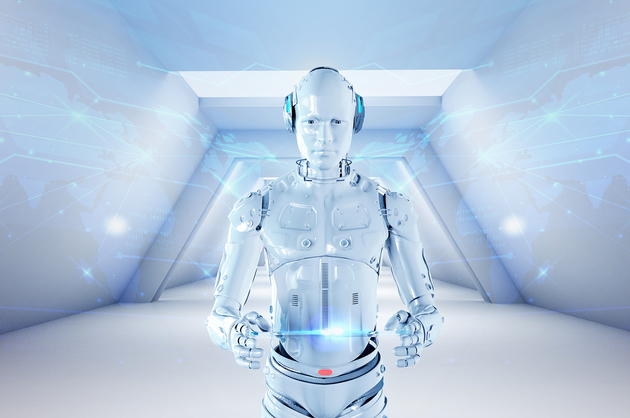May 22 (NBD) -- "I sometimes couldn't fall asleep at night, as I couldn't stop thinking about how to promote the worldwide cooperation in artificial intelligence (AI) ethics and governance," said Wendell Wallach at the Roundtable Discussion on "Artificial Intelligence in China: Building Stakeholder Networks on AI Ethics and Governance" hosted by Taihe Institute in Beijing on May 21.
Wendell Wallach is convener of the International Congress for the Governance of AI and chair of the Technology and Ethics Research Group at Yale University's Interdisciplinary Center for Bioethics.
Ethics governance has gradually come into focus in the AI development. "The (AI) industry has developed, it is happening fast," Dr. Thorsten Jelinek, Director and Senior Fellow at Taihe Institute, pointed out. "AI revolution will be a final revolution."
Prudential regulation has been proved to be the most effective supervision method for emerging areas like AI. But how far should the governments go in AI ethics governance? How should countries work with each other? In an exclusive interview with National Business Daily (NBD), Dr. Jelinek shed some lights on these issues.

Dr. Thorsten Jelinek [Photo/Han Yang (NBD)]
On the use of disruptive AI for social good
How fast is the growth of the AI sector? Data shows the year 2017 alone witnessed the incorporation of 1,100 AI startups and a capital inflow of 15.2 billion U.S. dollars - a rise of 141 percent year over year - into the AI area.
A report by McKinsey shows some 70 percent of companies might have adopted at least one type of AI technology and AI has the potential to deliver additional global economic activity of around 13 trillion U.S. dollars by 2030.
AI, which is considered to be the primary driving force of the fourth industrial revolution, is replacing "Internet plus" to be the new growth engine of the economy. But in the eyes of Dr. Jelinek, AI will exert bigger impact at the social level.
"AI revolution is not a revolution, it's a final revolution," he stated. "It's changing the notion of work, the meaning of work, the meaning of society, how we relate to one another, how we relate to technology."
"AI actually is redefining 'human'," Wang Yiwei, professor of School of International Studies at Renmin University of China, said to NBD. The development of AI will fundamentally change the competitiveness of nations, which is actually a reshaping of rules.
Dr. Jelinek further explained, "AI basically in a way is changing the trajectory of humanity, maybe not the direction we wanted. I think this is what we have to really interfere and hence that is a final revolution. It would take long, and it is a long technical revolution, but in a way a final one, especially when it comes to the automation of the automation."
System building and int'l collaboration a priority
AI is completely different from technologies that led to previous industrial revolutions. Though its development is still at an early stage, the building of stakeholder networks on AI ethics and governance has already been put on the agenda.
After passing the General Data Protection Regulation last year, the European Union (EU) released the ethical guidelines for AI development in April this year, a move in the eyes of Center for Data Innovation's senior policy analyst Eline Chivot aimed at confirming its place in global AI development.
Many countries are also following in the footsteps of the EU to create ethics standards for AI. China's Minister of Science and Technology Wang Zhigang said the country is working on the draft of guidelines for AI governance. In the U.S., some states have already released similar regulations.
But some held that such a practice, while offering policy support and helping creating a reliable cooperative mechanism, would to some extent restrict innovations and regular development of enterprises and institutions in the emerging sector.
"I think it's a trade-off between keeping the momentum of innovation and just developing the AI capacity and technologies. Because of the scenarios, that could be negative development for the industry," Dr. Jelinek noted. "If one company captures all these opportunities, there would be no space for other companies. Or technology is not being used so much for the services of society, and for harmony, or for social creations, or for privacy."

Photo/Shetuwang
Dr. Jelinek mentioned a way of self-regulation. "Basically AI should be, by design, kind of self-aware in order to avoid the human bias when we develop the algorithm. It is just a proposal that algorithm should regulate themselves in a way," he said citing another professor.
At the discussions, many participating experts also emphasized that AI requires mutual governance on the international level, as it is just like other global issues such as climate change that need the joint efforts of the international community.
"The proposal here was also something which goes cross - cross nations, cross religions, because again this is a global issue, and single governments are maybe overwhelmed," Dr. Jelinek stressed. "Technology crosses boundaries, so you need to collaborate with the outside world in order to facilitate perspective sharing and coordination. Also, a sense of multilateralism is to have multiple countries involved in this discussion."
'Triangular' framework between China, the U.S. and EU proposed
Similar to many other international cooperation projects, there also lacks a binding mechanism that could balance the competitive relations among countries in the course of cooperation.
At the Beneficial AI conference held in Asilomar, California in 2017, 844 AI and robotics researchers signed the Asilomar AI Principles, which are important guidelines for the development of Safe AI and broadly supported by the AI community, industry and public intellectuals.
Afterwards, there came similar multinational AI collaboration frameworks, but often in a loose way, according to Dr. Jelinek. Regarding this, he called for frameworks that could be dynamically adjusted to keep up with the pace of change.
The collaboration among countries has to overcome differences - cultural differences, value differences and even ethics differences. "For the U.S., AI is for profit, is for individual self-fulfill. In Europe, AI for social coherence, for privacy protection. For China, AI is for harmony, this is more of a collective approach, maybe a more harmonical approach," Dr. Jelinek remarked.
Regarding the differences, Wang Yiwei told NBD that China, the U.S. and the EU could give full play to their strengths to build a cooperative framework.
In the view of Dr. Jelinek, China could make good use of its cultural advantages, for example, incorporating the idea of altruism into the AI ethics discussions to cement its place in the AI development.
Email: lansuying@nbd.com.cn


 川公网安备 51019002001991号
川公网安备 51019002001991号





